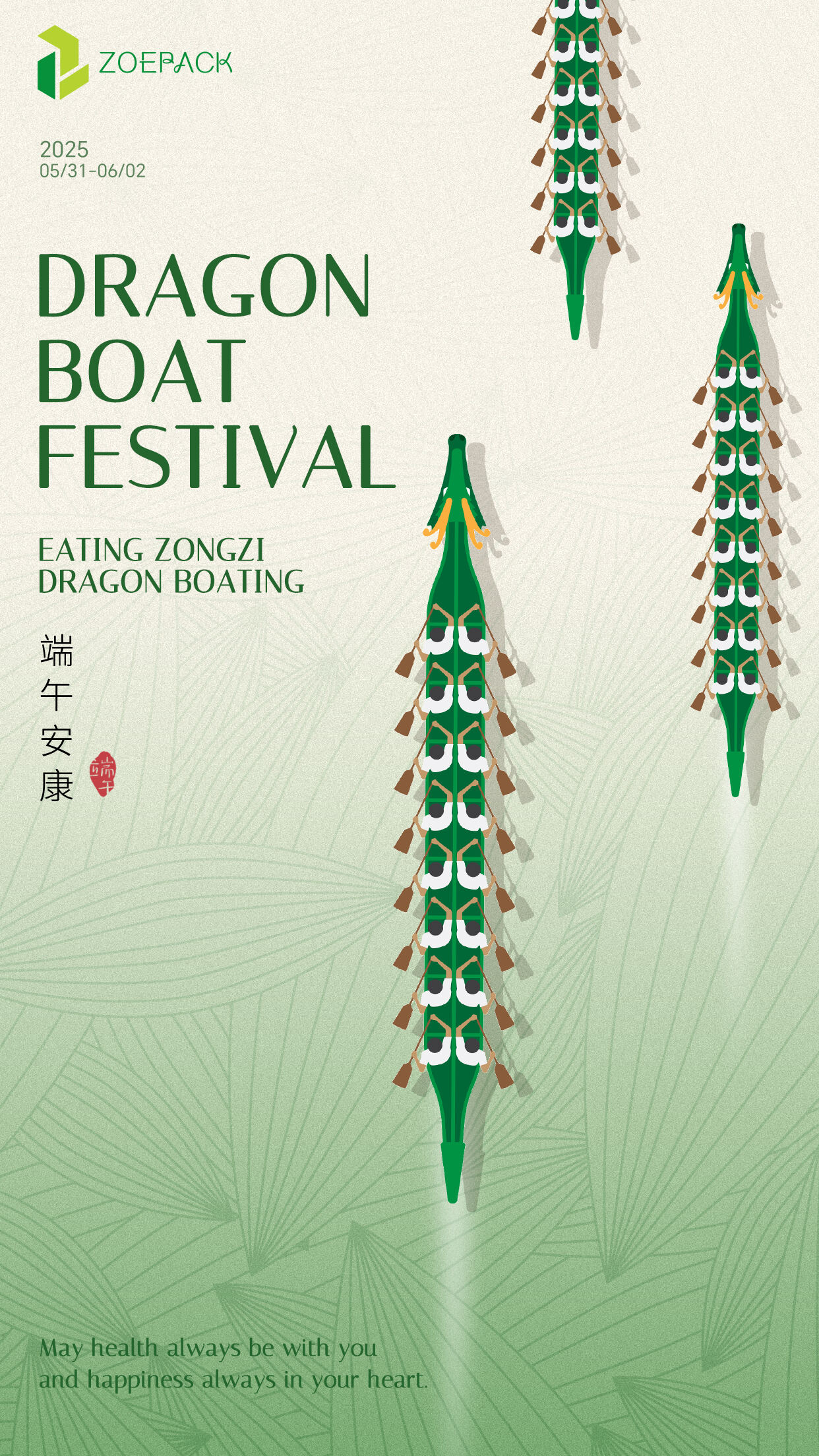The Enchanting Dragon Boat Festival: A Tapestry of Tradition and Culture
May.30.2025
In the rich tapestry of Chinese traditional festivals, the Dragon Boat Festival, also known as Duanwu Festival, stands out as a vibrant and culturally significant celebration. Falling on the fifth day of the fifth lunar month, this festival has a history spanning over two millennia, filled with fascinating legends, unique customs, and profound cultural meanings.
The origins of the Dragon Boat Festival are deeply rooted in Chinese history and mythology, with several stories passed down through generations. One of the most widely - known legends is associated with Qu Yuan, a patriotic poet and statesman who lived during the Warring States Period (475 - 221 BC). Qu Yuan was a loyal minister to the King of Chu but was slandered by corrupt officials and banished from the court. Grieved by the decline of his country and unable to see it regain its glory, Qu Yuan, in a moment of despair, threw himself into the Miluo River on the fifth day of the fifth lunar month. When the local people heard the news, they rushed to the river in small boats, desperately trying to find his body. They beat drums and splashed the water with their paddles to scare away the fish and other aquatic creatures from devouring Qu Yuan's body. They also threw zongzi, a traditional Chinese rice dumpling, into the river, hoping to feed the fish so that they would not harm Qu Yuan. Since then, these actions have evolved into the customs of dragon boat racing and eating zongzi during the Dragon Boat Festival, symbolizing the people's respect and remembrance for Qu Yuan. Another legend links the festival to the worship of dragon gods in ancient times. The fifth lunar month was considered a time when the power of the dragon was at its peak, and people held various rituals and activities to pray for good fortune, peace, and protection from natural disasters. These ancient beliefs and practices gradually merged with the story of Qu Yuan over time, giving the Dragon Boat Festival its unique and complex cultural connotations.
The Dragon Boat Festival is renowned for its diverse and distinctive customs, each carrying its own symbolic meaning. One of the most iconic activities is dragon boat racing. Dragon boats are long, slender canoes, often decorated with elaborate dragon - head and dragon - tail carvings at the bow and stern. Teams of paddlers, usually numbering around 20 - 30, sit in the boat, synchronizing their strokes under the guidance of a drummer at the front and a steersperson at the rear. The rhythmic drumming sets the pace for the paddlers, creating a thrilling and energetic atmosphere. The race is not only a test of strength and teamwork but also a way to commemorate Qu Yuan's heroic spirit. The fierce competition on the water represents the determination and unity of the people in the face of difficulties. In addition to dragon boat racing, eating zongzi is another essential custom. Zongzi is made by wrapping glutinous rice with various fillings, such as sweet red bean paste, salted duck egg yolk, or savory pork, in bamboo or reed leaves and then steaming or boiling them. The shape of zongzi can vary, but the most common ones are triangular or tetrahedral. The tradition of eating zongzi during the Dragon Boat Festival not only satisfies people's taste buds but also serves as a reminder of Qu Yuan and the sacrifices he made. Moreover, during the festival, people also hang mugwort and calamus leaves on their doors. These plants are believed to have medicinal properties and can repel insects, evil spirits, and diseases. It is a traditional way of protecting the family's health and well - being. Some regions also have the custom of drinking realgar wine, which is thought to have the power to dispel evil and prevent diseases. However, due to the toxicity of realgar, modern - day people usually only dab a little realgar wine on their foreheads or wrists as a symbolic gesture.
Beyond its traditional customs, the Dragon Boat Festival holds profound cultural significance in Chinese society. It is a time for family reunions, where people gather together to celebrate, share stories, and strengthen family bonds. The festival also serves as a powerful reminder of the Chinese nation's long - standing values, such as patriotism, loyalty, and perseverance, which are embodied in the story of Qu Yuan. Through the annual celebration of the Dragon Boat Festival, these values are passed down from generation to generation, playing a crucial role in shaping the national identity and cultural heritage. In recent years, with the increasing globalization, the Dragon Boat Festival has also gained international recognition and popularity. Dragon boat races are now held in many countries around the world, attracting participants and spectators from diverse backgrounds. This not only promotes cultural exchange but also showcases the charm and uniqueness of Chinese culture to the global community. The festival's traditional food, zongzi, has also become a delicacy enjoyed by people outside of China, further enhancing the influence of Chinese cuisine.

In conclusion, the Dragon Boat Festival is a remarkable celebration that combines history, mythology, customs, and cultural values. Its unique traditions and deep - seated meanings have endured through the ages, making it an important part of Chinese culture. As we continue to celebrate this festival, we not only preserve our cultural heritage but also contribute to the continuous development and dissemination of Chinese culture in the modern world. Whether it is the thrilling dragon boat races, the delicious zongzi, or the meaningful customs, the Dragon Boat Festival will always hold a special place in the hearts of the Chinese people and continue to enchant people around the globe with its timeless charm.

